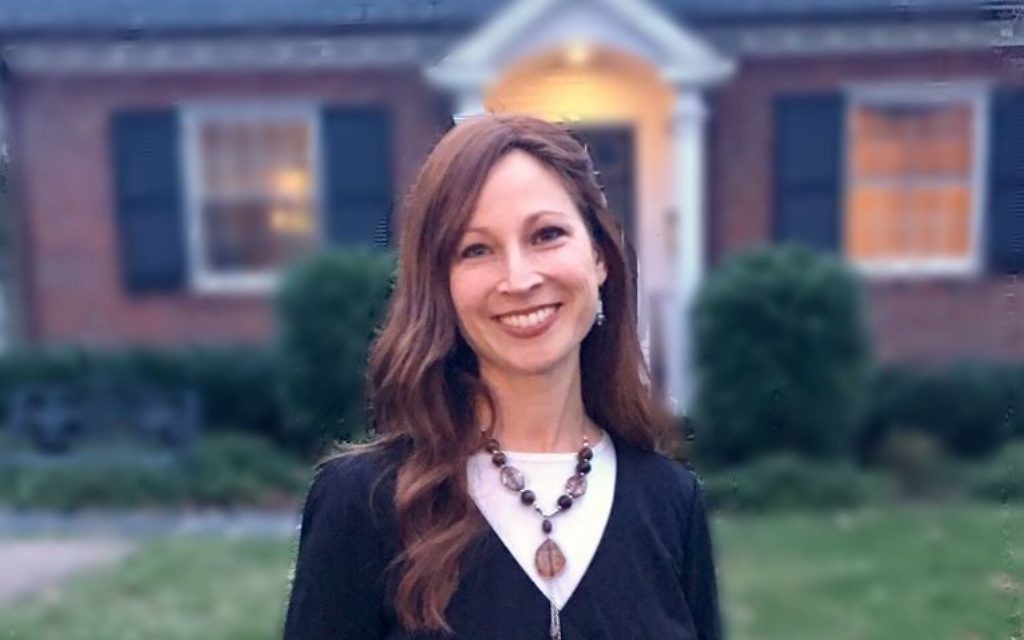Hand of Hashem: The Power of Words
For a writer, few things are more unsettling than staring at a blank screen, waiting for the words to flow. Especially when a due date is pending and the pressure to produce something meaningful comes not just from within.
This column launched from a moment of divine inspiration that unexpectedly uncorked a stream of thoughts that followed on the heels of a hiatus from writing. The columns since that eruptive one — about fulfilling our missions in life and serving G-d by using our strengths — have typically required more thought and effort, though the results I hope are similar.
Earlier in my career I developed an ongoing series for a non-Jewish newspaper called “Faith in Motion,” about people who overcame major life challenges — sometimes hitting rock bottom — and went on to do something extraordinary guided by their newfound faith. I got to meet some of the most inspiring and humble people.
Get The AJT Newsletter by email and never miss our top stories Free Sign Up
But why did it seem, based on my limited experience, that only non-Jews could be “born again” to connect so deeply with G-d and use that connection as a springboard for goodness and healing?
Around that time I started discovering my own faith. Born and raised in a mostly nonobservant Jewish home, I began searching for something meatier and more authentic.
The past 10 years I have worked to tap into the depths of Torah and mysticism, discovering how mitzvot like Shabbat, kashrut and family purity can shape a person and a family.
I have learned the Jewish concept that our seemingly negative character traits are not a burden pulling us away from being more enlightened. Honing these particular traits is a powerful divine mission in and of itself and can serve as a springboard to do something amazing.
I have also realized that being Jewish is about being a spectacular person and going beyond your nature. To give of your time and money until it hurts. To be kind even if someone seemingly wrongs you. And through your speech, your carefully chosen words, you have immeasurable power.
This month I was added to a WhatsApp group of Jewish women who have joined together to learn and pray in the merit of one woman’s ill husband. She sought advice from a respected rabbi, who suggested that a woman who is going through tzaar (troubles) is given a special koach (life force). She was told to use her koach given by G-d to get the women of Israel to work on improving their speech and eliminating lashon hara (gossip).
After joining, I was shocked to learn that I was part of a group of more than 7,300 Jewish women from all over the world, listening to daily passages from the book “Purity of Speech” by the Chofetz Chaim. As Rabbi Yehuda Zev Segal of Manchester said on the subject, “I have not seen a person who learned two (thoughts) a day in (proper speech) who hasn’t been helped with having children, finding a marriage partner, recovering from illness, earning a livelihood or properly raising children.”
Wow.
As I turned to the Torah portion Matot in an easy-to-understand book called “Torah for Your Table,” I read about the same subject. It is through speech, the Torah says, that we give expression to the divine spark G-d breathed into our beings. It is through speech that G-d created the world, and it is through speech that we, in our human way, send out positive or negative energy.
My articles and columns are typically meant to be inspiring, whether they’re about my own journey or the journey of others. I have written hundreds of articles for print and online publications, and people all over the world have left lovely comments and responses.
It sounds great. But this week was a wake-up call of sorts. As a writer, I may reach and inspire many people. But how are my words to the people who are closest to me? The ones I love the most and am most comfortable with? The ones who know how to press my buttons?
My words to them are not carefully prepared and edited, as they are for my articles. But maybe they should be.
So after all the moments the past decade studying mitzvot and Torah, learning to live and write like a religious Jewish woman, maybe the biggest and most important mitzvah was the one I gave little thought.
Reaching thousands of strangers pales in comparison with how I speak to my husband, my four children and my parents. I’m typically careful not to gossip or talk about other people. But are my words — when I’m in the heat of a disagreement or overwhelmed by the demands of children — ones that build up rather than tear down?
As King Solomon said, “Death and life are in the power of the tongue.” Whether filling a blank page or reacting to a bored 6-year-old who wants my attention while I’m writing, I’ll try to choose wisely.





comments